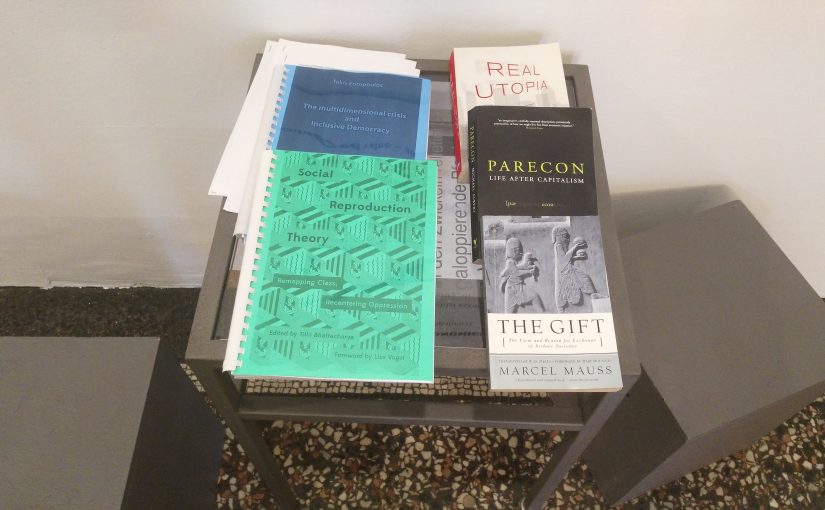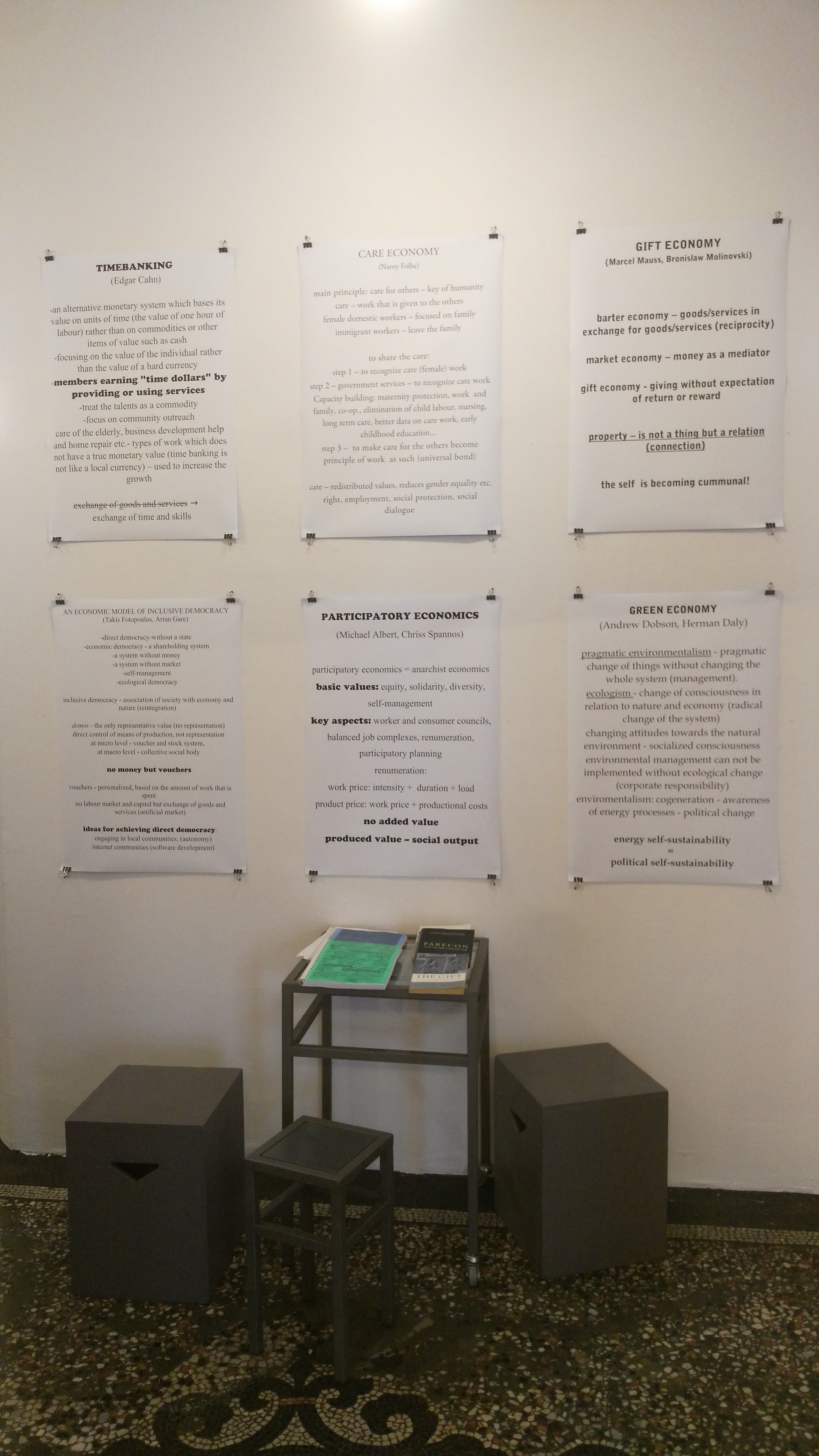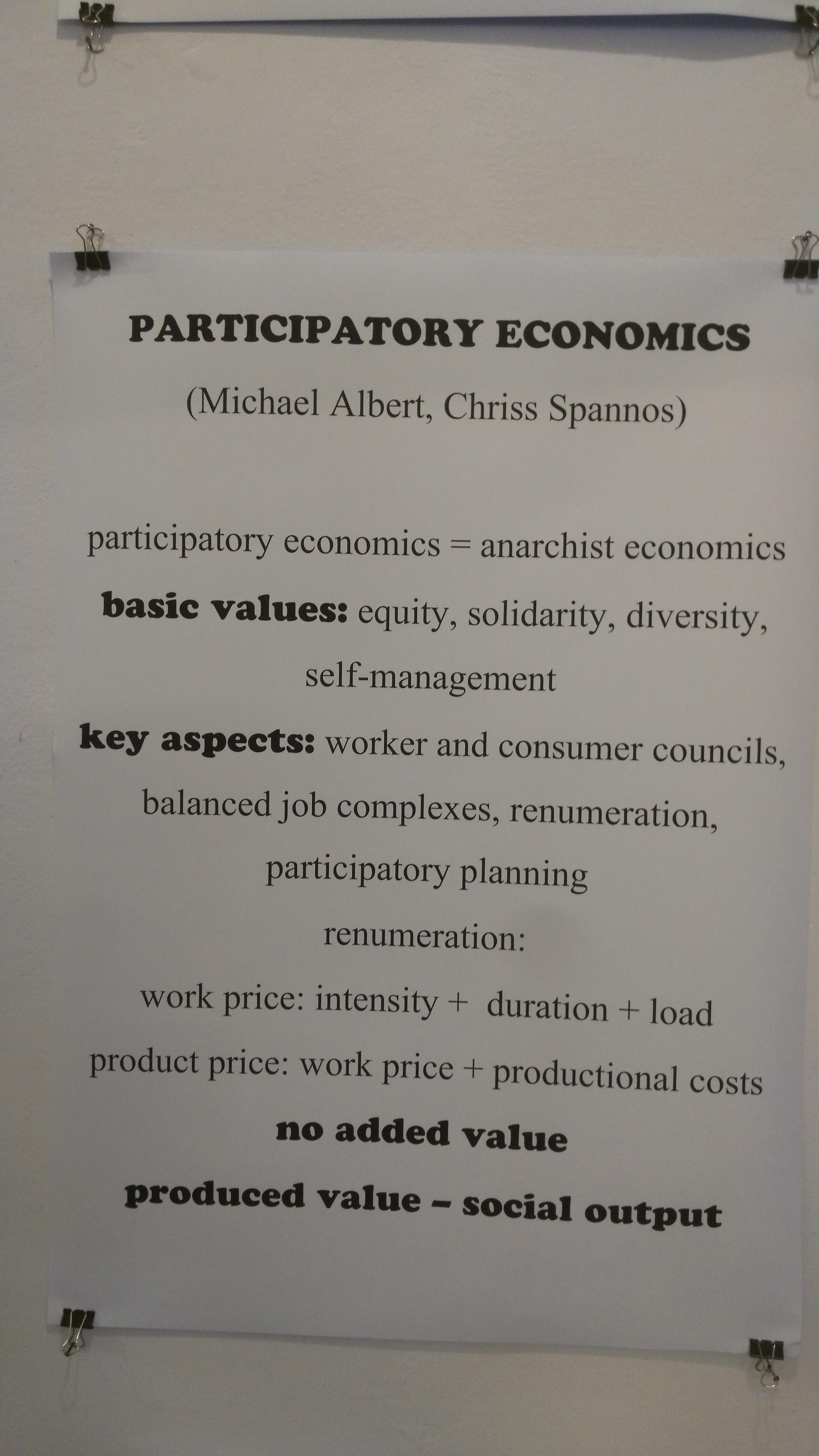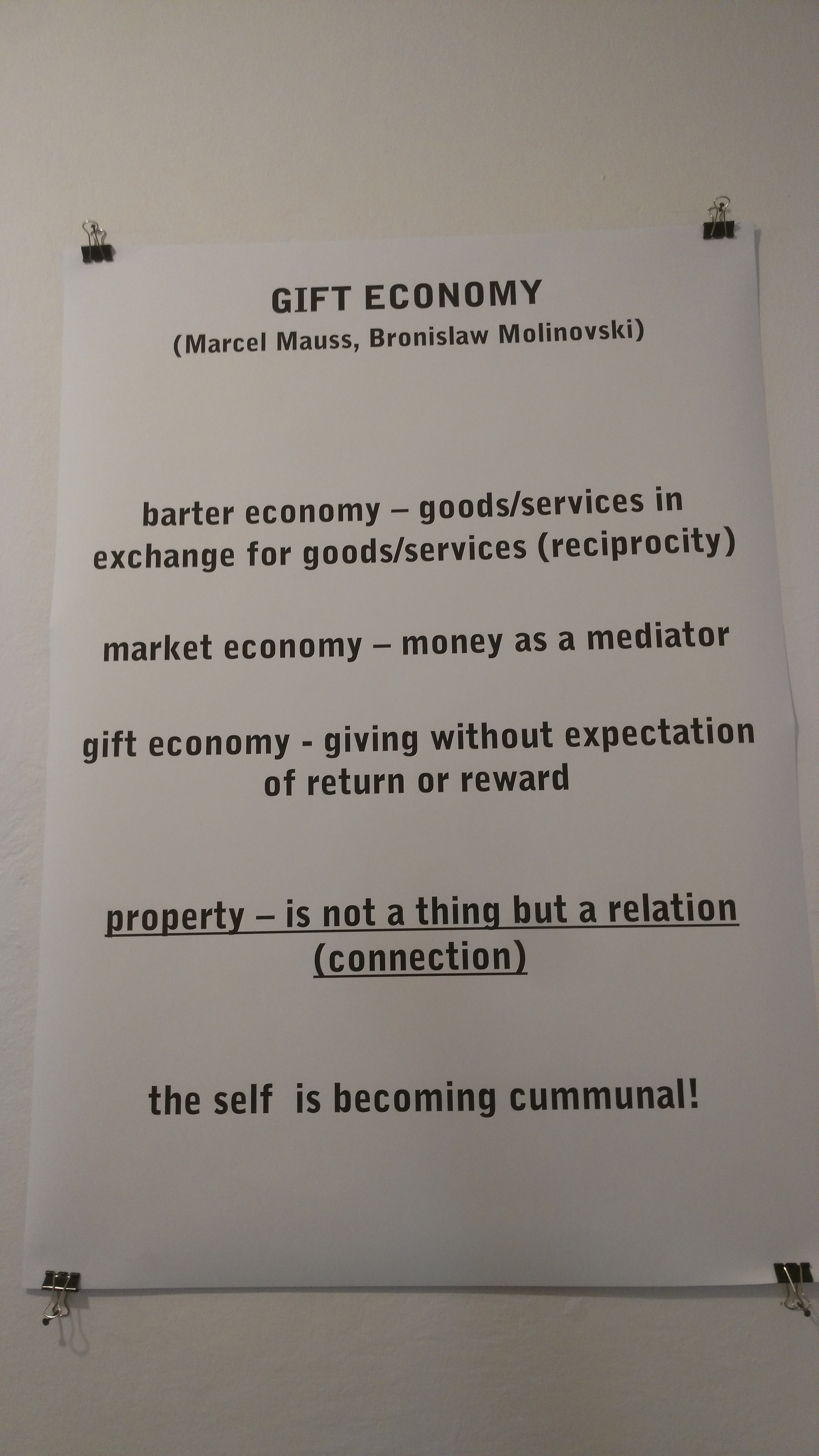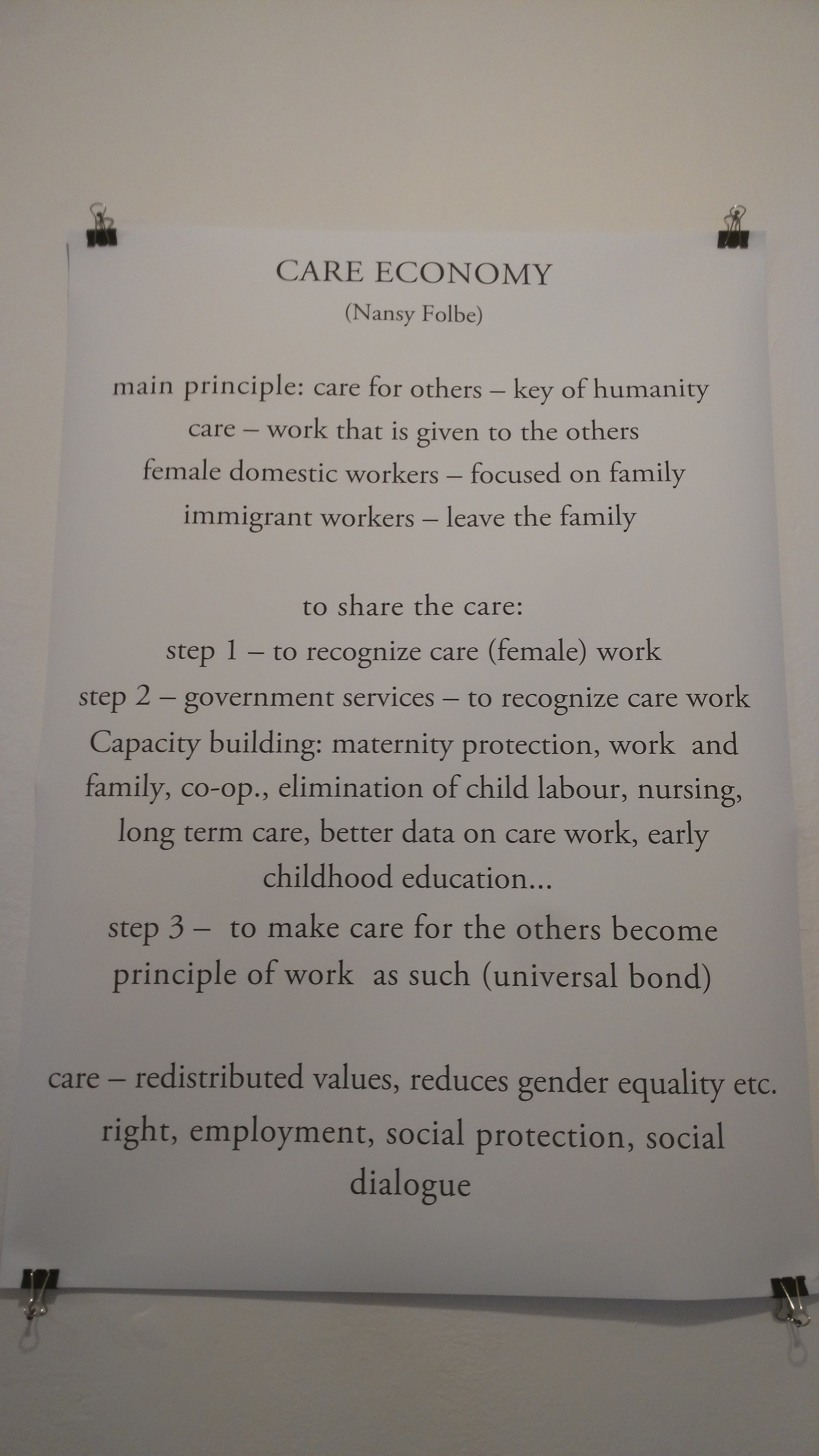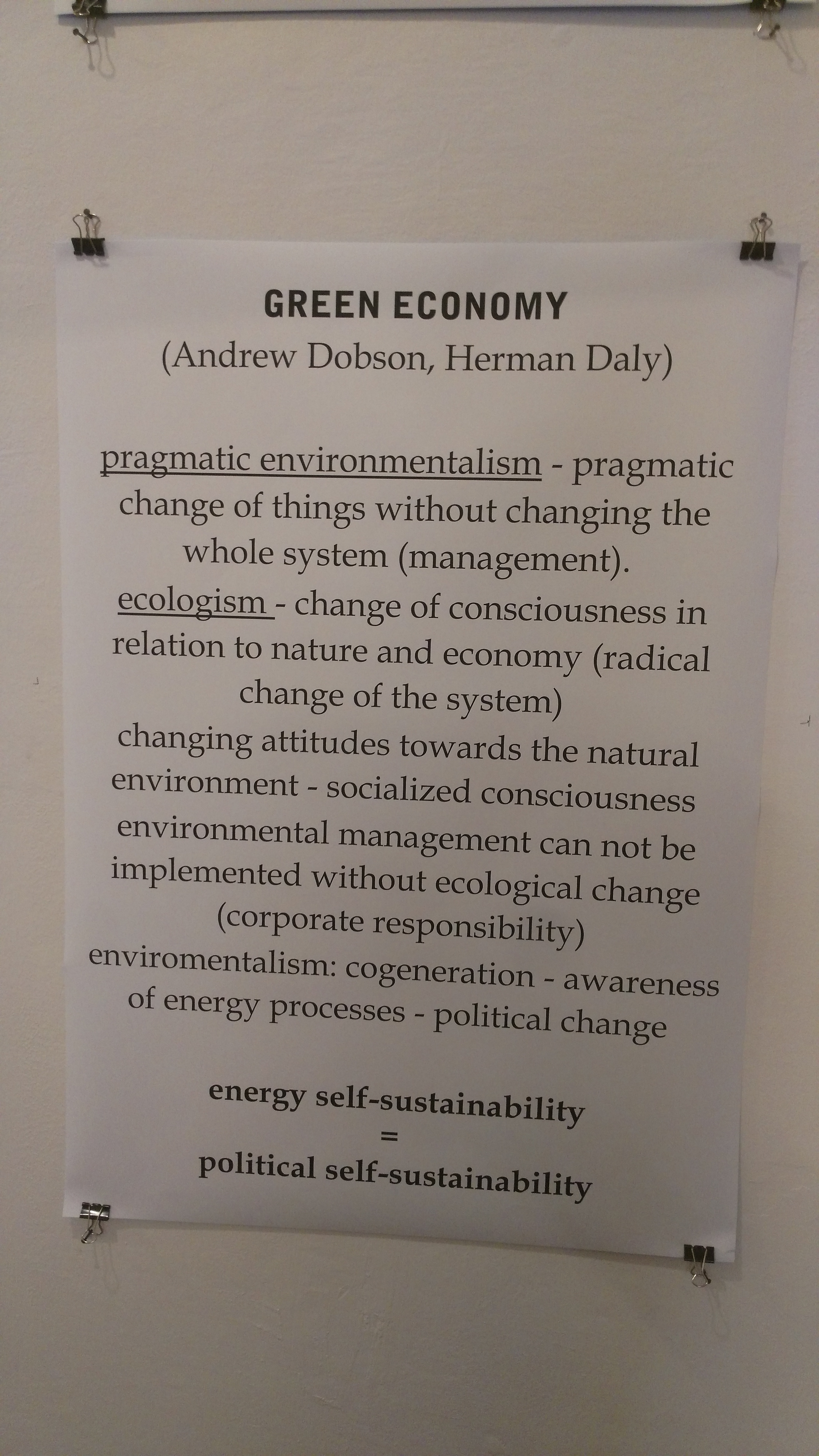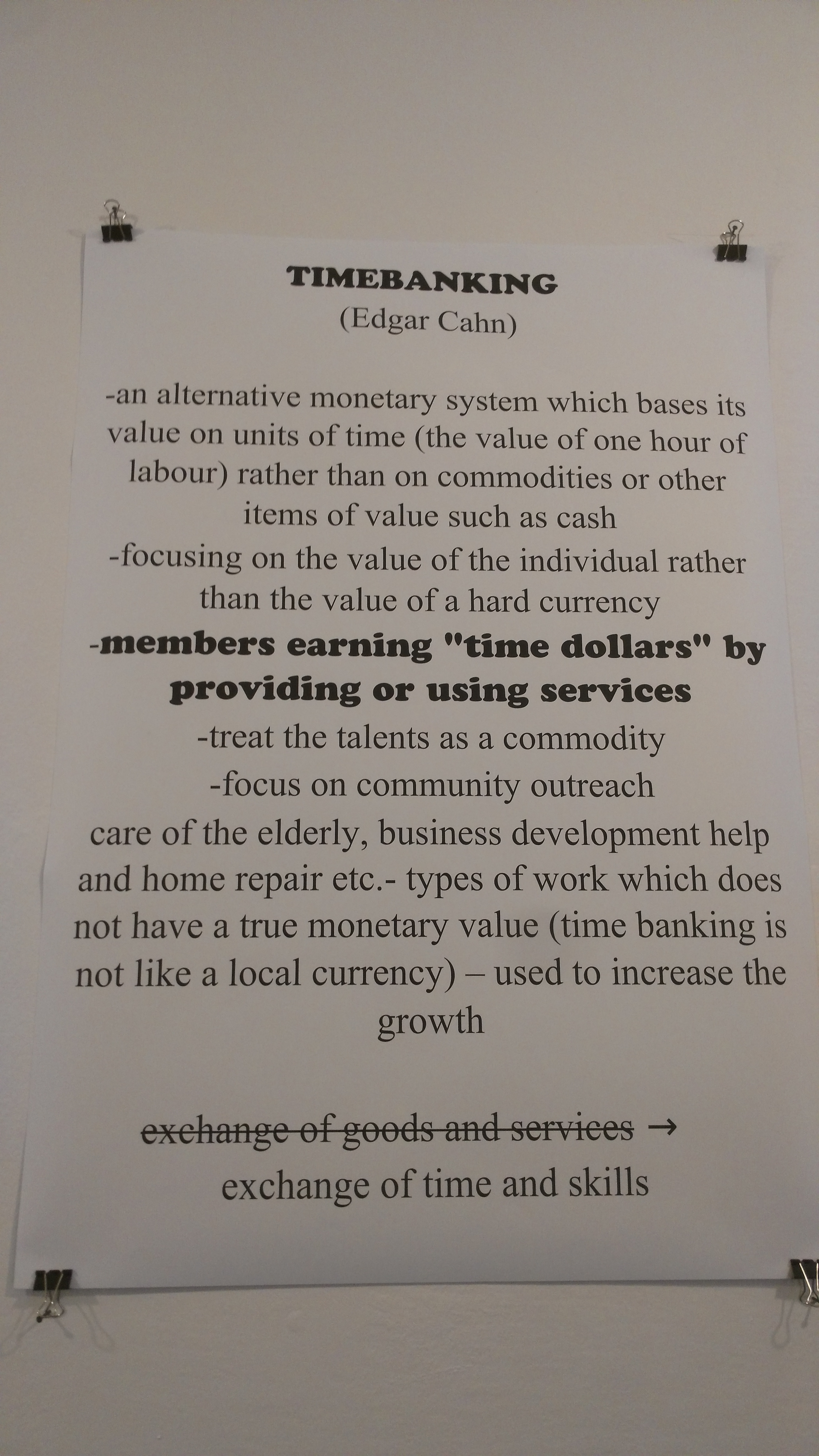instalacija, 2018.
Ideja obrazovnog projekta „Biblioteka društvene ekonomske teorije“ zasniva se na promociji alternativnih ekonomskih modela koji nadilaze neoliberalni ekonomski sistem. Područje interesovanja je proučavanje ekonomskih teorija koje nude potencijalne mogućnosti za razvoj i uspostavljanje ekonomske razmene koja se ne baziraju na principima pojedinačnih profita subjekata, već se upravljaju interesom zajednice u celini. Alternativne teorije ekonomije koje projekat pokriva za ovu priliku su: 1 PARECON – Participativna ekonomija (Michael Albert, Chris Spannos) – ekonomska teorija koja se zasniva na ideji zajedničkog odlučivanja prema nivou uticaja koji subjekt ima na nešto, odnosno modelu samoupravljanja radom organizacije zasnovanom na zajedničkom radu proizvođača i potrošača i jednakoj distribuciji dobara; 2 Inkluzivna demokratija (Anthoni Giddens, Jon Elster, Takis Fotopoulos, Aran Gare itd.) – oblik direktne demokratije koji podrazumeva model političkog i ekonomskog odlučivanja koji je otvoreniji za građansko učešće (minimalističko i maksimalističko demokratsko učešće); 3 Teorija poklona (Marcel Mauss) – ideja o poklonu kao osnovu razmene – entitet koji nešto daje od sebe kao subjekta koji sam uspostavlja neku prazninu, ali taj jaz nastavlja da kruži u kolektivu (za razliku od kapitalističkih društava u kojima ova praznina uvek ostaje kod subjekta) – ideja dara kao načina širenja sebstva na celu zajednicu; 4 Ekonomija brige (Nansi Folbe) – Rad na brizi – uloga brige jednih o drugima kao oblika ekonomske razmene („feministička“ ekonomija); 5 Vremensko bankarstvo (Edgar Cahn) – ekonomija zasnovana na razmeni vremena i veština, umesto na robi i uslugama.
Instalacija egzistira kao otvorena biblioteka.
PARTICIPATORY ECONOMICS
(Michael Albert, Chriss Spannos)
participatory economics = anarchist economics
basic values: equity, solidarity, diversity, self-menagement
key aspects: worker and consumer councils, balansed job complexes, renumeration, participatory planning
renumeration:
work price: intnesity + duration + load
product price: work price + productional costs
no added value
produced value – social output
———————————————————————
GIFT ECONOMY
(Marcel Mauss, Bronislaw Molinovski)
barter economy – goods/services in exchange for goods/services (reciprocity)
market economy – money as a mediator
gift economy – giving without expectation of return or reward property – is not a thing but a relation (connection) Self to the community!
————————————————————————-
AN ECONOMIC MODEL OF INCLUSIVE DEMOCRACY
(Takis Fotopoulos, Arran Gare)
-direct democracy-without a state
-economic democracy – a shareholding system
-a system without money
-a system without market
-self-management
-ecological democracy
inclusive democracy – association of society with economy and nature (reintegration)
demos – the only representative value (no representation)
direct control of means of production, not representation
at micro level – voucher and stock system,
at macro level – collective social body
no money but vouchers
vouchers – personalized, based on the amount of work that is spent
no labor market and capital but exchange of goods and services (artificial market)
ideas for achieving direct democracy:
- engaging in local communities, (autonomy)
- internet communities (software development)
———————————————————————————-
CARE ECONOMY
(Nansy Folbe)
main principle: care for others – key of humanity
care – work that is given to the other
girl domestic workers – focused on family
immigrant worker – one who leave the family
to share the care:
step 1 – to recognize care (women) work
step 2 – goverment services – to recognize care work
Capacity building: maternity protection, work and family, co-op., elimination of child labour, nursing, long term care, better data on care work, early childhood education…
step 3 – to make care for the other become principle of work as such (universal bond)
care – redistributed values, reduces gender equality ect.
right, employment, social protection, social dialogue
—————————————————————————————
GREEN ECONOMY
(Andrew Dobson, Herman Daly)
pragmatic environmentalism – pragmatic change of things without changing the whole system (management).
ecologism – change of consciousness in relation to nature and economy (radical change of the system)
changing attitudes towards the natural environment – socialized consciousness
environmental management can not be implemented without ecological change (corporate responsibility)
enviromenatalism: cogeneration – awareness of energy processes – political change.
energy self-sustainability – political self-sustainability
—————————————————————————————————
TIMEBANKING
(Edgar Cahn)
-an alternative monetary system that bases its value on units of time (the value of one hour of labor) rather than on commodities or other items of value such as cash
-focusing on the value of the individual rather than the value of a hard currency
-members earning „time dollars“ by providing or using services
-treat the talents as a commodity
-focus on community outreach
care of the elderly, business development help and home repair etc.- types of work which does not have a true monetary value (time banking is not like a local currency) – used to increase the growth
exchange of goods and services. – > exchange of time and skills
____________________________________________________________________________________
Produkcija: rotor – Association for Contemporary Arts, Grac, Austrija, 2018.
